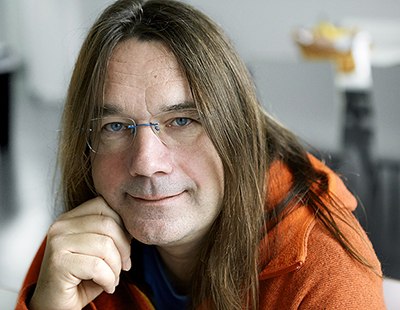A variety of perspectives drives quality
Broader recruitment is a critical issue for KTH and Sweden when it comes to pursuing quality in the long-term.
So says Leif Kari, Vice President of Education at KTH, who after nine months in the post, has a clear picture of what needs to be developed.

Using such strong words as matter of destiny does not seem to fit that well with Kari's way of expressing himself, which further emphasises the seriousness of the matter.
“It is not simply a matter of fairness and democracy but also a question of quality. We are a small country, no bigger than a suburb of Shanghai. The broader our recruitment base, the better our chance of attracting the right students.”
Widening recruitment also reduces the risk of too homogeneous environments that can sometimes have an adverse effect on quality. The more different perspectives there are, the better this will reflect the social good KTH can bring.
Kari has looked at education at KTH from a variety of aspects and in many roles including as a student, doctoral student, head of programme, professor and school director. Now, he is responsible for ensuring the 15,000 or so students including around 2,000 research students at KTH, get the very most out of their respective education.
New education structure
The importance of different perspectives is a recurring theme in the new education structure that Kari has ultimate responsibility for implementing.
It's about how courses, faculties and administrators work together in an effective way to enable KTH study programmes to be continuously developed and quality assured.
“This makes it easier to hear the views of the entire organisation and issues can be given proper scrutiny and planning.
Another building block is the KTH restructuring from ten to five schools that was started two years ago where one line of thought was that all students at first cycle and doctoral level should enjoy a uniform structure and the same procedure.
“It is important that you feel at home irrespective of the particular school you are studying at.”
The close interchange between research and education and vice versa is something Kari also emphasises. And the two come together in doctoral student programmes.
“Here, there is potential to develop study programmes such that we strengthen the balance between research output and education. If a doctoral student is researching in a small area of a larger part of a project for the majority of their time, there is a risk that they miss out to an extent on the breadth and entirety of the study programme. You should feel you are in a large education environment at KTH with many people to bounce ideas off. This relates to both the quality of the education and the work environment itself.”
Lifelong learning
Another major area that has been debated and responsibility for bounced between different official bodies in recent years is the issue of lifelong learning. This is also in Kari's in-tray and he has formed a working group where all schools are involved.
“It is important to gain broad buy-in if you want to create a sustainable organisation.”
Sometimes, there is a degree of confusion surrounding what lifelong learning actually is and Kari is investigating concepts related to this. It is partly contract education for companies and public authorities that KTH has offered for many years, and partly grant financed continuing professional development and in service training where we await what STRUT (Swedish Public Inquiry into Management and Resources) finally decides upon.
“In practice, contract education is part of our normal contract work that has often been driven by various strong-minded individuals here. But we are now building up a system that works independently of individuals.”
How would you describe the level of KTH study programmes in general?
“Good, really good. But naturally, they can always become even better - and that is the the plan.”
Words: Jill Klackenberg
